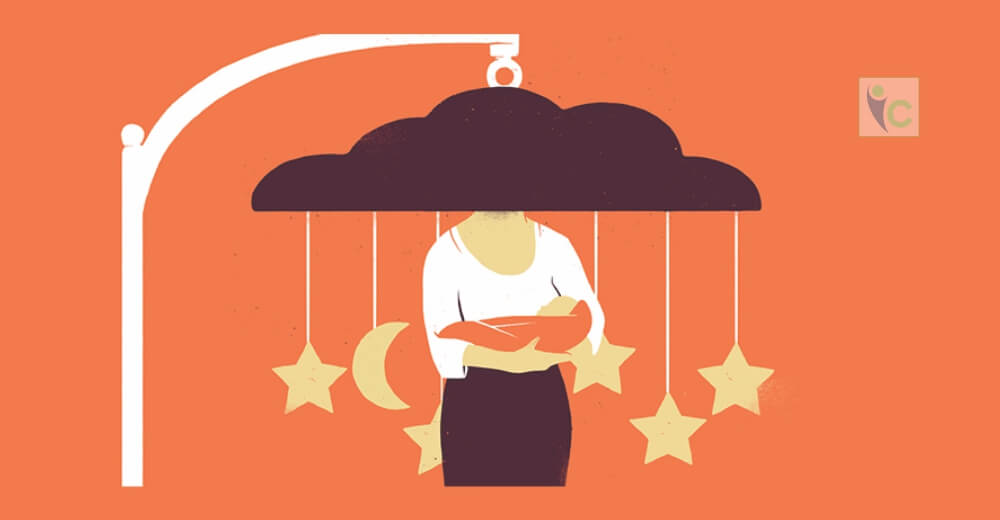The joy of having a baby, the bare happiness when you hold it for the first time in your arms, the feeling of having that tiny wrist wrapped around the finger is probably the best experience in the world. However, carrying, delivering, and nurturing a baby can sometimes be stressful. What’s worrying is that sometimes, this goes beyond normal stress. An intense depressed feeling during and after pregnancy is a serious mental condition known as Perinatal Depression. The long-lasting stress, severe anxiety, and many other such symptoms indicate that the parent needs professional attention and people, many a times, fail to recognize this. Caused by physical changes as well as emotional complications, perinatal depression should be treated in time and with care.
While mood swings, crying, irritation, anxiety, appetite gain or loss, insomnia, sadness, overwhelming feeling, loss of concentration mark the issues of baby blues; the long-term, intense signs that can interfere with not just the day-to-day activities of a person, but in the care of the baby as well are related to perinatal depression. Perinatal depression is not only experienced by the mother, but also by the father, sometimes. The symptoms in the new dads are similar to that observed in mothers.
It is essential for a person to opt for professional care if he/she notices the signs such as depression, excessive crying, disturbance in sleep patterns, appetite problems, fatigue, feeling hopeless, shameful, guilty, and worthless, social withdrawal, difficulty in bonding with the child, severe anxiety, panic attacks, suicidal thoughts, obsession over the baby, agitation, agitation, hallucination, and the thoughts of harming own self or the baby. It usually occurs during the pregnancy, after the delivery, or even a year after the child birth. Therefore, it is important to take any symptoms noticed throughout the pregnancy period as well as after the delivery seriously. People with a family history or past experiences about depression are more prone to develop this condition.
People usually mistake perinatal depression for baby blues and nothing can be more harmful for the existing conditions than that. It will only prolong the problem and even worsen it. Awareness and education about the mental health of the parent can be extremely helpful and maternity hospitals can make it a practice to inform the pregnant couples about the same during their regular check-up sessions.
People are unaware of this issue and are sometimes even embarrassed to share the problems with their loved ones or seek professional help. Mistaking perinatal depression for baby blues is common and can prove to be harmful for the parent as well as the child. We, as friends and family, should be supportive and address the problem if we see any change in the behavior of the new parents. Depression screening during and after the pregnancy, for both the parents, is always a better idea. It aids in timely analysis and addressing of perinatal depression.















